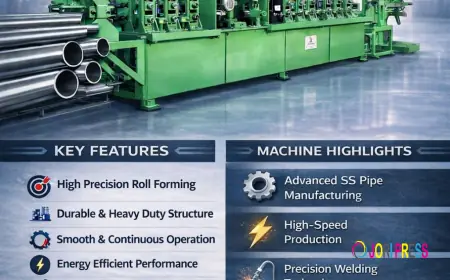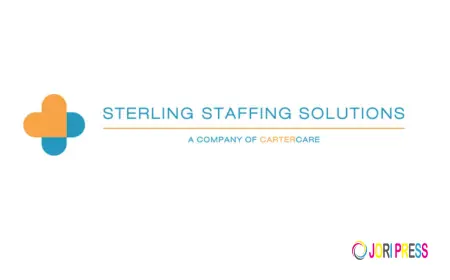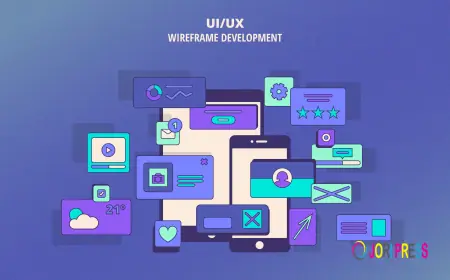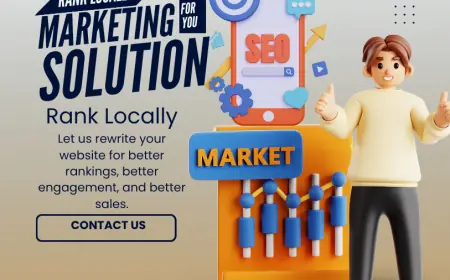Build Smarter Solutions Through How to Build AI Agent Skills
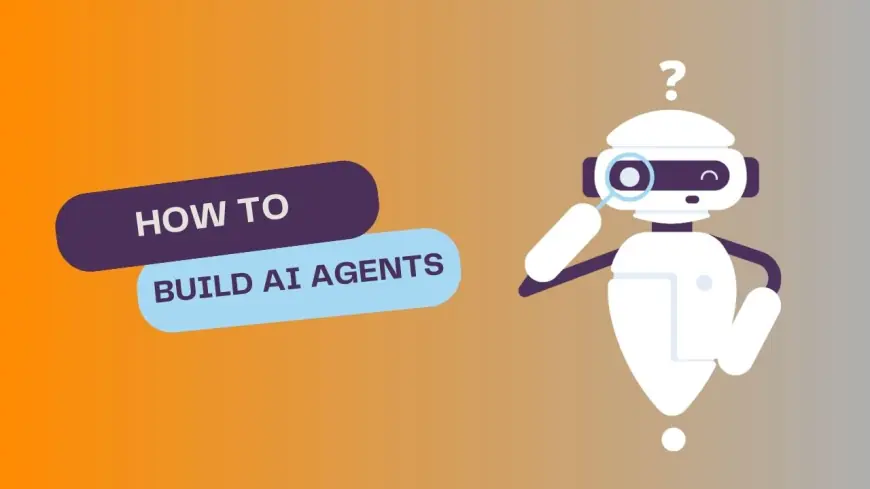
Introduction: Building Smarter Digital Futures
In today’s rapidly changing digital economy, enterprises and developers alike are under pressure to create smarter, more adaptive solutions that can handle complexity while improving efficiency. At the center of this movement is the rising importance of learning how to build AI agent systems. Unlike traditional software, AI agents are capable of perceiving, learning, and acting autonomously in real-world or digital environments. For businesses, this means having intelligent digital assistants that can reduce operational costs, deliver personalized experiences, and predict outcomes with remarkable accuracy.
The ability to design and deploy AI agents has become a critical skill for both developers and organizations. Partnering with an AI agent development company gives enterprises access to cutting-edge expertise and tools, while professionals who master these skills are positioned to become leaders in AI innovation. Whether the focus is on AI chatbot development, enterprise AI development, or building custom solutions, the ultimate goal is to create systems that integrate seamlessly into business operations and deliver measurable ai agent benefits.
This article explores the processes, frameworks, strategies, and platforms that make up modern ai agent development. It looks at the impacts of ai agent adoption across industries, the importance of custom ai agent development, and the role of developers in shaping a future defined by smarter, more autonomous enterprise solutions.
Why AI Agents Are Transforming the Digital Landscape
The last decade has been defined by automation, but the next era will be defined by intelligence. Enterprises are moving beyond rule-based systems to embrace AI agents that can adapt and learn continuously. By understanding how to build an AI agent, developers can unlock capabilities that make enterprise platforms more responsive and future-ready.
AI agents are designed to handle complexity, making decisions based on contextual information, historical data, and real-time events. For businesses, this adaptability translates to competitive advantages. Customer service becomes more intuitive, logistics more efficient, and financial analysis more accurate. This is why many organizations rely on ai agent development services to create systems tailored to their specific needs.
For developers, the journey of mastering AI agent development is as much about strategy as it is about coding. It involves understanding the ai agent development process, leveraging frameworks and platforms, and ensuring alignment with long-term business goals. These skills allow developers to deliver ai agent development solutions that not only solve immediate challenges but also evolve as industries transform.
Ai Agent Benefits in Smarter Solutions
The ai agent benefits extend far beyond traditional automation. Enterprises that adopt AI agents experience greater efficiency, reduced human error, and increased adaptability. For instance, in customer support, AI agents provide personalized responses that enhance user satisfaction. In healthcare, they assist doctors in diagnostics by analyzing patient data more efficiently than human staff.
Another major benefit lies in predictive intelligence. AI agents can forecast demand in retail, detect fraud in financial systems, and optimize supply chains in manufacturing. The impacts of ai agent adoption create ripple effects across industries, improving not only profitability but also customer trust and operational resilience.
For developers, the ability to design such impactful systems elevates their role from coders to innovators. By learning how to build AI agent technologies, developers gain skills that can be applied across multiple industries, ensuring long-term relevance in a rapidly evolving marketplace.
The AI Agent Development Process: From Concept to Deployment
The ai agent development process is structured to ensure that agents are designed with both technical precision and business alignment. It begins with defining the objective of the AI agent. Developers must understand whether the goal is customer engagement, operational efficiency, or predictive analytics.
The next stage is data acquisition and preparation. AI agents thrive on high-quality, structured data. Without it, even the most advanced models cannot deliver accurate results. Once data is ready, developers select models—ranging from supervised and unsupervised learning to reinforcement learning—depending on the complexity of the task.
Training follows, where agents learn from patterns within the data. Rigorous testing ensures the AI agent can perform accurately and reliably in real-world scenarios. The final step is deployment, integrating the agent into enterprise platforms where it interacts with users, processes, or systems. Ongoing monitoring and retraining ensure the agent evolves with new data and changing business needs.
For developers aiming to master how to build an AI agent, understanding this process is fundamental. Each stage contributes to creating systems that are not only functional but transformative.
Types of AI Agents in Smarter Platforms
The types of ai agents vary based on complexity and purpose. Reactive agents are the simplest, responding directly to environmental stimuli without memory. While basic, they are useful in tasks requiring speed and repetitive execution.
Deliberative agents add sophistication by using knowledge of past experiences to plan future actions. These are better suited for enterprise tasks that involve strategic decision-making. Hybrid agents combine both approaches, offering fast responses alongside thoughtful planning.
Collaborative agents are another category, designed to work closely with humans. They are particularly effective in domains like healthcare, where AI can provide recommendations but human expertise is still essential.
Understanding these categories is key for developers when designing ai agent development solutions. Choosing the right type of agent ensures alignment with business requirements and maximizes the value of AI deployment.
Leveraging Frameworks and Platforms for Development
The availability of ai agent development frameworks and ai agent development platforms has significantly accelerated the growth of intelligent solutions. Frameworks like TensorFlow, PyTorch, and spaCy provide developers with essential tools for natural language processing, deep learning, and reinforcement learning. They reduce the need to build every component from scratch, enabling developers to focus on innovation.
Platforms, on the other hand, provide full environments for designing, training, testing, and deploying AI agents. Cloud-based ai agent development platforms are especially valuable for enterprises, offering scalability, security, and seamless integration with existing IT infrastructure. Developers can use these platforms to build enterprise-ready agents faster and more efficiently.
Mastering these frameworks and platforms is critical for anyone learning how to build an AI agent. They provide the foundation on which smarter solutions can be constructed.
Custom AI Agent Development for Unique Business Needs
While general AI tools exist, they rarely meet the nuanced demands of enterprise environments. This is where custom ai agent development comes into play. Businesses in regulated industries like healthcare and finance often require tailored solutions that comply with specific legal and operational frameworks.
An AI agent development company often begins by analyzing the enterprise’s workflows, pain points, and long-term goals. From there, developers design custom agents that align with these needs. For example, in logistics, a custom AI agent might factor in weather, traffic, and demand fluctuations to optimize delivery schedules. In finance, a custom agent might continuously monitor transactions to detect anomalies that suggest fraud.
The value of custom ai agent development lies in its ability to deliver measurable outcomes. Developers who specialize in this area position themselves as indispensable partners in enterprise AI development.
Strategic Thinking in AI Agent Development
The technical process of building AI agents must be supported by strong strategic planning. A sound ai agent development strategy ensures that AI deployment is scalable, adaptable, and aligned with organizational objectives.
Enterprises need agents that can evolve with time, adapting to changing data and market conditions. This requires designing agents with continuous learning capabilities and monitoring systems. Developers must also integrate ethical considerations such as transparency, fairness, and accountability.
By focusing on long-term adaptability and ethical design, developers and enterprises ensure that their ai agent development solutions remain valuable and sustainable.
AI Chatbot Development as a Gateway to Advanced Agents
AI chatbot development often serves as the first step for organizations exploring AI agent adoption. Chatbots offer a practical entry point, allowing businesses to automate customer service and sales support. Developers working on chatbot projects gain valuable experience with natural language processing, context recognition, and conversational design.
The skills acquired from chatbot projects directly transfer to more complex ai agent development initiatives. Chatbots may begin as simple tools, but they evolve into intelligent digital assistants capable of handling multi-step reasoning and integration with enterprise workflows.
For businesses, investing in AI chatbot development is not just about solving immediate customer service challenges—it is about building a foundation for enterprise AI development.
The Impacts of AI Agent Adoption in Enterprises
The impacts of ai agent adoption are profound. In healthcare, AI agents assist doctors by analyzing imaging data and patient records, improving diagnostic accuracy. In finance, they detect fraudulent activity and provide investment insights. In logistics, they optimize supply chains and reduce inefficiencies.
For enterprises, the result is greater agility and resilience. For developers, the ability to design and deploy these systems enhances career opportunities and positions them as leaders in innovation.
However, impacts are not limited to business outcomes. Ethical implications, workforce adaptation, and regulatory compliance are also part of the conversation. Developers must balance technical advancement with responsibility, ensuring AI adoption fosters trust and long-term success.
Enterprise AI Development: Scaling Smarter Solutions
Enterprise AI development represents the culmination of AI agent adoption. At this stage, organizations create platforms that integrate multiple AI agents to handle large-scale, complex operations. These platforms rely on vast datasets, real-time decision-making, and seamless integration with diverse systems.
Developers who master how to build an AI agent are instrumental in enabling enterprise AI development. From predictive analytics in healthcare to fraud detection in banking and optimization in logistics, AI agents are redefining what enterprise systems can achieve.
Enterprises that embrace these technologies today will lead tomorrow, while developers who acquire these skills secure their place as innovators in the AI revolution.
The Future of Smarter Solutions with AI Agents
The future of AI agents in enterprise platforms is bright. Agents will become more context-aware, capable of reasoning across multiple steps, and seamlessly integrated into business workflows. Developers who specialize in custom ai agent development will play a critical role in shaping this future.
As ai agent development frameworks and platforms continue to mature, building AI agents will become more accessible. Yet enterprises will still rely on expert developers and AI agent development companies to deliver custom, strategy-driven solutions.
The next generation of AI agents will not only automate tasks but also serve as partners in decision-making, driving innovation and growth across industries.
Conclusion: Building Smarter Solutions Through AI Agent Skills
Building smarter solutions through how to build AI agent skills is no longer an option—it is a necessity. For developers, mastering the ai agent development process, understanding the types of ai agents, leveraging ai agent development frameworks and platforms, and creating custom ai agent development strategies are essential steps in becoming leaders in AI innovation.
For enterprises, the ai agent benefits are clear: improved efficiency, enhanced personalization, and stronger decision-making. The impacts of ai agent adoption are already transforming industries, and the future promises even greater potential.
By partnering with an AI agent development company and investing in AI chatbot development and enterprise AI development, organizations can build intelligent ecosystems that redefine success. Developers who focus on how to build an AI agent become the architects of these smarter solutions, shaping a future where intelligence, adaptability, and innovation define the global digital economy.
What's Your Reaction?
 Like
0
Like
0
 Dislike
0
Dislike
0
 Love
0
Love
0
 Funny
0
Funny
0
 Angry
0
Angry
0
 Sad
0
Sad
0
 Wow
0
Wow
0






